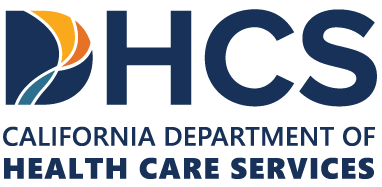Cognitive Behavioral Therapy for Addiction Recovery
Addiction involves much more than physical dependence—it’s intertwined with thoughts, emotions, and behaviors. Many people struggling with substance use find themselves caught in negative thought patterns that reinforce addiction. They may turn to drugs or alcohol to cope with stress, trauma, or emotional pain, unaware that their thoughts are driving the cycle of addiction.
CBT (cognitive behavioral therapy) helps break this cycle by identifying and changing unhealthy thought patterns that contribute to substance use. At The Retreat, we integrate CBT into our addiction treatment programs to help people gain control over their minds, develop healthier ways to cope, and set the stage for a sober, fulfilling life.
If addiction has taken hold of your life, you don’t just need willpower—you need the right tools and strategies to overcome it. CBT can help you take back control.

What is CBT (Cognitive Behavioral Therapy)?
CBT is an evidence-based therapy that focuses on the connection between thoughts, feelings, and behaviors. It teaches individuals to recognize negative thinking patterns that fuel addiction and replace them with healthier, more constructive ways of thinking.
How Does CBT Work?
CBT operates on the belief that thoughts influence behaviors. If someone believes, “I can’t handle stress without drinking,” they are more likely to turn to alcohol when faced with stress. CBT helps individuals:
- Identify harmful thoughts and beliefs that lead to substance use.
- Challenge and reframe those thoughts into more positive, realistic perspectives.
- Develop healthy coping mechanisms to deal with cravings and stress.
- Practice problem-solving skills to handle life’s challenges without turning to substances.
By learning to change thought patterns, people can change their behaviors, making CBT a powerful tool for long-term recovery.
Why is CBT Effective for Addiction Treatment?
CBT is one of the most widely used and effective therapies for addiction recovery. It provides practical skills that individuals can use in everyday situations to resist relapse and stay sober long-term.
The Benefits of CBT in Addiction Treatment
CBT in addiction treatment delivers many benefits, including:
- Helps manage cravings: CBT teaches individuals how to recognize cravings before they become overwhelming. Instead of acting on cravings impulsively, people learn to pause, assess, and respond differently.
- Identifies triggers and risk factors: CBT helps people understand what triggers their substance use, whether it’s stress, social situations, or negative emotions. Once identified, individuals can develop strategies to avoid or cope with triggers.
- Teaches healthier coping mechanisms: Many people use drugs or alcohol to deal with stress, anxiety, or trauma. CBT provides alternative coping strategies such as mindfulness, relaxation techniques, and problem-solving skills.
- Reduces negative thought patterns: Many individuals struggling with addiction have self-defeating beliefs, such as “I’m not strong enough to quit” or “I’ve already messed up, so I might as well keep using drugs or alcohol.” CBT challenges these beliefs and replaces them with positive, empowering thoughts.
- Prepares individuals for real-world challenges: Sobriety is not just about quitting substances—it’s about learning to live a fulfilling, substance-free life CBT helps individuals build confidence in handling stress, relationships, and setbacks without turning to drugs or alcohol.
CBT Techniques Used in Addiction Treatment
At The Retreat, we incorporate various CBT techniques to help clients rewire their thought processes and behaviors.
Thought journaling
Many people struggling with addiction are unaware of their automatic negative thoughts. Keeping a journal helps individuals:
- Recognize patterns in their thinking.
- Identify what triggers their substance use.
- Challenge negative thoughts and replace them with healthier alternatives.
Cognitive restructuring
Cognitive restructuring helps people challenge distorted thoughts and replace them with more realistic, positive perspectives.
A person might believe, “I’ll never be able to stay sober,” for example. Through CBT, they learn to replace this with, “Recovery is hard, but I am taking steps to improve my life.”
Exposure therapy
Avoiding triggers isn’t always possible. Instead, CBT teaches people how to face high-risk situations in a controlled, supportive environment.
Individuals learn to sit with discomfort instead of immediately reaching for a substance. Over time, triggers lose their power, and they gain confidence in their ability to resist cravings.
Behavioral activation
Depression and addiction often go hand in hand, leading to isolation and loss of motivation. Behavioral activation encourages individuals to:
- Engage in healthy, meaningful activities to improve mood.
- Set small, achievable goals to rebuild self-confidence.
Relapse prevention planning
CBT helps individuals create detailed relapse prevention plans by:
- Identifying warning signs of relapse.
- Developing emergency coping strategies for high-risk situations.
- Practicing urge surfing—a technique that helps individuals ride out cravings without giving in to them.

CBT for Dual Diagnosis: Treating Addiction and Mental Health
Many people struggling with addiction also deal with co-occurring mental health disorders, such as anxiety, depression, PTSD, or bipolar disorder. Without treating these conditions, the risk of relapse remains high.
At The Retreat, we specialize in dual diagnosis treatment, using CBT to:
- Address both addiction and mental health struggles simultaneously.
- Teach coping strategies for managing anxiety, depression, and trauma without substances.
- Help individuals develop emotional resilience for long-term recovery.
By treating the whole person, not just the addiction, we set a solid foundation for lifelong sobriety.
Is CBT Right for You?
CBT is effective for individuals who:
- Struggle with negative thought patterns that lead to substance use.
- Want to develop better coping skills for stress and cravings.
- Have co-occurring mental health conditions that need treatment.
- Are ready to take an active role in their recovery.
At The Retreat, we tailor CBT to each person’s needs, ensuring that therapy is practical, personalized, and results-driven.
Start Your Journey to a Healthier Mind and Body
Cognitive behavioral therapy is more than just a treatment—it’s a life-changing tool that helps people regain control over their thoughts, emotions, and behaviors. If addiction has taken hold of your life, you don’t have to stay stuck in the cycle.
At The Retreat, we provide expert care, compassionate support, and proven CBT techniques to help individuals break free from addiction and create a healthier future. Call The Retreat today to learn how CBT can support your recovery journey.





